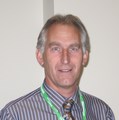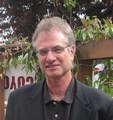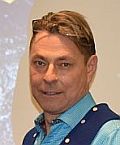OKANANGAN ‘FROM RAIN TO RESOURCE WORKSHOP’: “The strategy for putting down topsoil to capture rainfall in the wet weather months is the same strategy for water conservation,” stated Ted van der Gulik when he described how to move from awareness to action and embrace a new culture as described in Beyond the Guidebook 2010 for achieving water sustainability (October 2010)

“One summer day, as I was on my way to a meeting, I was listening to a discussion on the radio about water conservation. The meeting that day was about rainwater management and the importance of putting water back into the ground for stream protection. It struck me that the same solution applies to water conservation and drought management. The topsoil that absorbs the water in the winter months is the same topsoil that retains water in the summertime so that we can irrigate less; and lawns and gardens would be healthier,” stated Ted van der Gulik.










